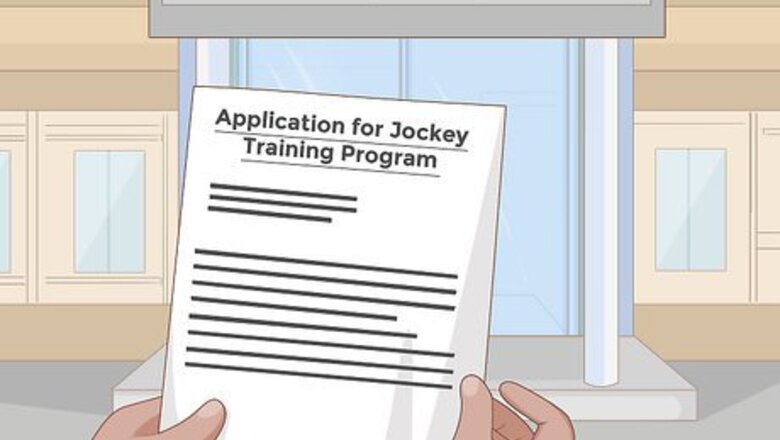
views
X
Research source
Acquiring Education and Training
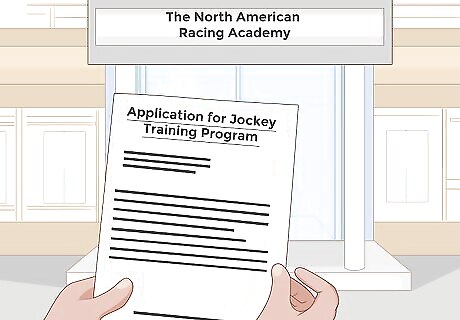
Enroll in a jockey training program. In the United States, the North American Racing Academy is the country’s only school for jockeys and offers a two-year program. Applicants need to have a high school diploma or GED and experience riding and training horses. In the United States, formal training is not required to become a jockey. However, other countries like the United Kingdom do require formal training.
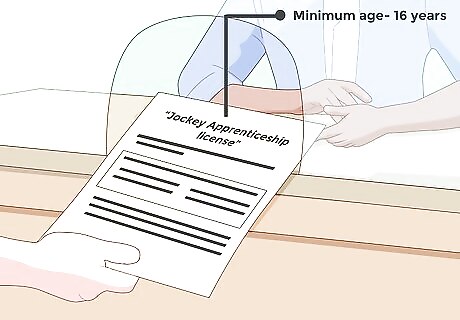
Apply for a jockey apprenticeship license. Since application requirements vary by region, it is important to research the rules in your area. In the United States, many states require applicants to be at least 16 years old and meet specific height and weight requirements.
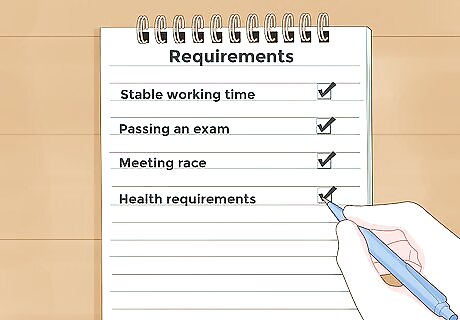
Fulfill apprenticeship requirements. These vary by region, so make sure you are familiar with the requirements in your area. They may include spending a certain amount of time working in stables, passing an exam, and meeting racing and health requirements.
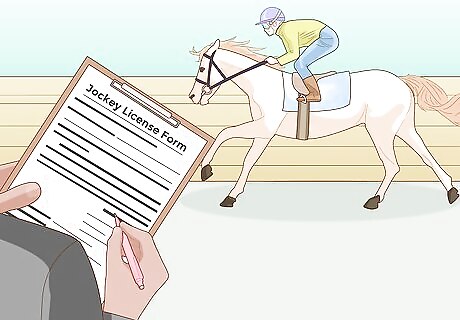
Apply for a jockey license. Requirements vary by region and could include demonstrating your riding skills and knowledge of racetrack rules to racetrack officials. You can apply for a jockey license at most racetracks. A jockey who has earned his or her jockey license is called a “journeyman jockey.”
Finding Work as a Jockey
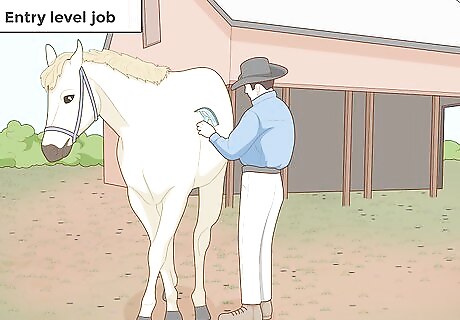
Take an entry level job at a race track or horse farm. This allows you to get experience with horses and start building a professional reputation. While the glamor of racing is what draws many jockeys to the profession, potential employers want jockeys who have a proven ability to work hard behind the scenes, too.

Network in the horse racing profession. Jockeys usually work for horse owners and trainers and receive job offers based on their professional reputation. Jockeys often exercise horses for trainers for free as a way to make professional connections.

Hire an agent. An agent solicits business with horse owners and trainers. While it isn’t mandatory to have an agent, the vast majority of jockeys are represented by one to assist with securing work.
Succeeding as a Jockey

Maintain weight with a healthy diet. Jockeys need to weigh between 110 pounds (50 kg) and 115 pounds (52 kg), so eating a balanced diet is very important. While some jockeys naturally fall within that range, most need to follow a very strict eating plan.
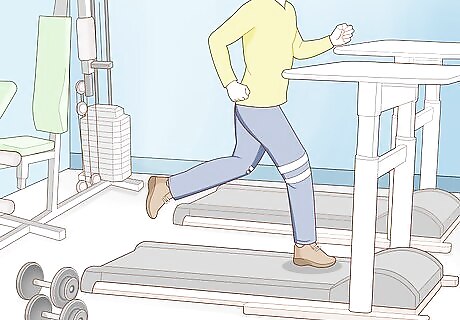
Exercise regularly. While riding horses is exercise, jockeys also need strength, stamina, and flexibility training to perform to the best of their abilities. Some jockeys hire personal trainers to stay in top form.
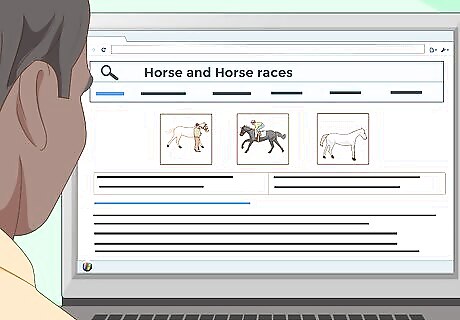
Study the races and horses. Since each race course and horse’s abilities are different, jockeys need to be knowledgeable about them in order to race effectively. After the race, jockeys often interact with trainers to give them information about the horse’s performance.

Join the Jockeys’ Guild. In the United States, the Jockeys’ Guild advocates for safe working conditions, bargains collectively for its members, and provides disability benefits and life insurance. Members must be licensed jockeys and pay annual dues of $100 and a mount fee of $4 for each horse they ride.

















Comments
0 comment